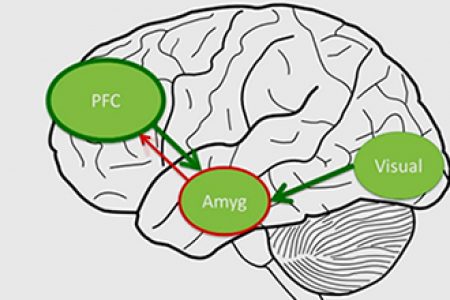Interfering with the hormonal system: oral contraceptive use
In the Netherlands, about 37 percent of women aged between 18 and 49 use oral contraceptives¹, taking them on average for 12 years of their lives. Why do so many of us interfere with our hormonal systems, and what are the effects on brain and behavior?
When you search for ‘oral contraceptives’ on Google, the first associations that appear on the screen are ‘headache’, ‘breast cancer risk’, ‘depression’, and ‘migraine’. Indeed, oral contraceptive (OC) use (especially when combined with heavy smoking) can cause serious side effects, such as thrombosis. Moreover, according to recent meta-analyses, OC use is associated with an increased risk for breast cancer, though it seems to protect against ovarian cancer.
Although alternative birth control methods such as an intrauterine device (IUD) are becoming more popular, two out of three Dutch adolescent girls and young adult women prefer OCs.
The OCs available fall broadly into two types: a combined OC pill, containing both estrogen and progesterone, and a progestin-only pill; of these, the combined OC pill is the most widely used. By combining both estrogen and progesterone, the pill mimics a menstrual cycle of 28 days (including ‘withdrawal bleeding’ within a stopping period of 7 days). These hormones prevent ovulation –and conception– from taking place. Besides preventing pregnancy, the pill is sometimes prescribed to treat acne and menstrual disorders.
It has been found that long-term use of OCs decreases the levels of many hormones, including testosterone. Testosterone is an important hormone involved in libido and mood, which could explain the lower libido and negative mood often reported by (long-term) OC users.
As increasing evidence demonstrates that the internal hormonal milieu is affected by OC use, it is likely that OC use affects brain and behavior as well (as hormones have multiple sites of action throughout the brain). It is only recently that studies have started to focus on the potential effects of OC use on the brain. For instance, brain responses to faces have been shown to be more pronounced in OC users than in non-users and communication between brain areas seems to decrease during OC use. Moreover, compared to naturally cycling females, OC users show reduced brain reactivity in response to emotions in several brain areas, such as the amygdala and insula. Furthermore, OC users report increased levels of depression and mood swings.
The effects of OC use on brain anatomy (such as white matter connections and gray matter) are currently unknown. Our previous research has demonstrated that high adolescent testosterone is related to lower white matter connectivity, which in turn relates to lower hostility. Interestingly, long-term OC use decreases testosterone levels and could possibly explain the increased levels of irritability, hostility, and depression often reported by OC users.
In summary, a substantial proportion of the female population systematically interferes with their hormonal systems to prevent pregnancy. However, scientific evidence is accumulating that –as well as sometimes causing cardiovascular side-effects– the contraceptive pill also affects brain and behavior. These findings may be very relevant for women in choosing among the various birth control methods available.





